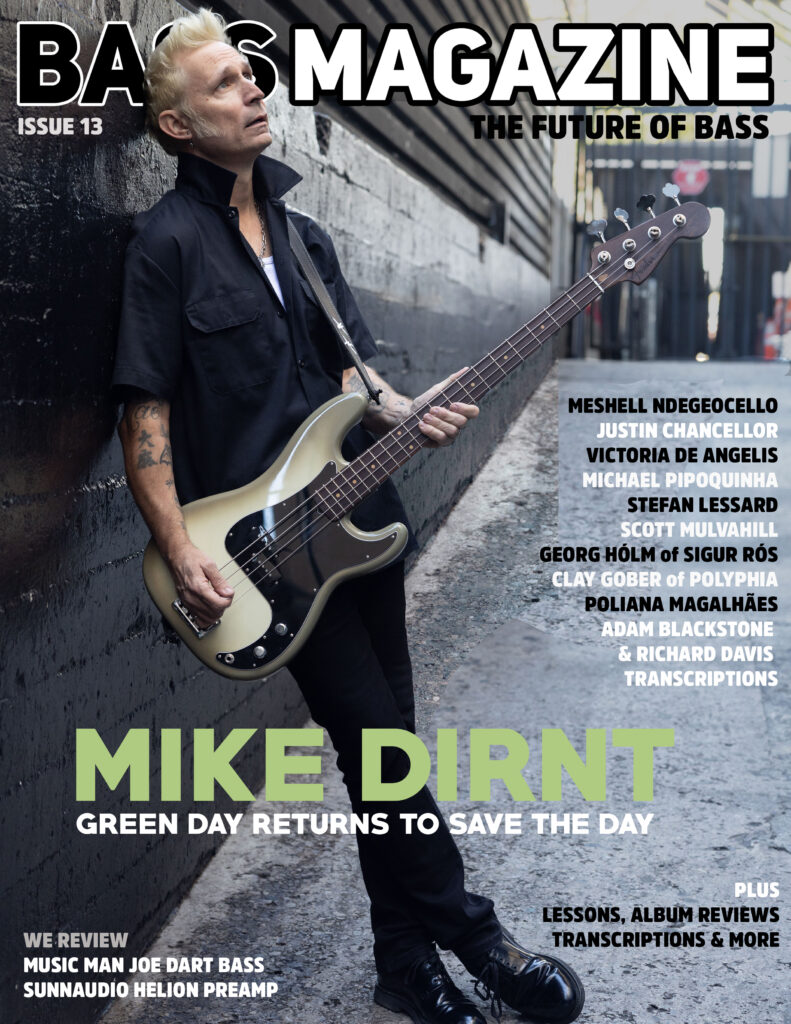God Particle, the collaboration between Stephon Alexander and Melvin Gibbs, will premiere a new work, “Ogodo Quanta” at the 2019 edition of the Vision Festival on Thursday, June 13th. This work is a sonic meditation on the idea of the “Cosmic Fabric”, the interconnected cosmic force.
Melvin Gibbs is a Grammy-nominated songwriter, a composer & musician who has been called “the World’s greatest bassist” by Time Out New York magazine. His wide-ranging resume includes tutelage by Ornette Coleman, time in the seminal bands Defunkt, the Decoding Society & the Sonny Sharrock Band, tenure in the alt-rock Rollins Band as well participating in the lauded project Power Tools with Bill Frisell and Ronald Shannon Jackson. He is a long-time member of the cooperative band Harriet Tubman, whose latest record “The Terror End Of Beauty” was cited as ” Best Jazz of 2018″ by the New York Times and Rolling Stone magazine and whose performance at the Earshot Jazz Festival was cited as a “Best Jazz Performance of 2018” by NPR – National Public Radio.
Stephon Alexander is a world-renowned scientist who is the current president of the National Society of Black Physicists. He is a theoretical cosmologist who in 2001, drawing on key concepts of string theory, co-authored a new model that may explain the accelerating expansion of the universe, known as “cosmic inflation”. Since 2016 Alexander has been a professor at Brown University. In 2017 he served as science advisor to Ava DuVernay’s film adaptation of the children’s classic “A Wrinkle in Time.” In 2016 Alexander’s book “The Jazz Of Physics”, his exploration of the connections between John Coltrane & Albert Einstein, was published. In this book Alexander, who is a jazz saxophonist himself, illustrated and expanded on some of the myriad connections between theoretical physics and music in general and jazz improvisation in particular, and spoke to how these connections to music have informed the development and work of science historically as well as speaking on how his work as a theoretical cosmologist has been informed by his connection to jazz.
Gibbs felt this book laid out the basis for an exploration in the inverse direction – a music project developed around the ideas informing theoretical cosmology that explores the concepts scientists see in the quantum world. Inspired, Gibbs reached out to Alexander to establish a collaboration. Alexander agreed and a project exploring “The Jazz Of Physics” was born. They named the project God Particle, which is another name for the Higgs boson, the particle whose existence was verified by the Large Hadron Collider in 2012. Building on the ideas informing God Particle, they soon expanded their collaboration by forming a 3 person collaboration with Justin Brice Guariglia, an artist whose work focuses on the Anthropocene, the era of human’s effect on the evolution of the planet as well as focusing on what that effect means. Guariglia is the NASA – embedded artist documenting climate change in Greenland. That collaboration has yielded what Alexander and Gibbs call “Music Of The Anthropocene”, music conceptualizing the relationship between humans and the planet Earth.
God Particle’s music is an exploration of the “quantum” concepts that are inherently embedded in jazz. Alexander and Gibbs identify theoretical physics constructs that have analogues in jazz, then codify those constructs, creating conceptualizations that can be applied and used in music. In addition to examining these constructs, Gibbs has also developed and extended musical concepts directly inspired by materials in Alexander’s book. Extending the idea informing this project, Alexander himself has identified a mathematical basis for the Einstein-inspired improvisations of late-period Coltrane and is developing a systemic exposition of it, both as a mathematical proof and a graphic “proof”, a visual exposition that is the next step of development of the idea Coltrane gave the world with his “music mandala”.
The piece God Particle is debuting at the Vision Festival is titled “Ogodo Quanta”. Alexander and Gibbs often communicate by using this process: Alexander exposes a cutting-edge theoretical physics construct to Gibbs, then Gibbs transmits it back to Alexander by expounding the piece of African cosmology or Indian philosophy that has contains the same or a closely related construct. The concept of a “cosmic fabric” is one is of these constructs. This idea occurs both in theoretical physics and African cosmologies such as the cosmology developed by the Igbo of Nigeria. Igbo cosmology says that the stars hang on the cosmic fabric (Ogodo in Igbo) worn by the feminine manifestation of the Highest God (Komosu). In the realm of theoretical physics we have (from https://space.mit.edu/LIGO/more.html) “In Einstein’s theory, space and time are aspects of a single measurable reality called space-time. Matter and energy are two expressions of a single material. We can think of space-time as a fabric.”
In this spirit, “Ogodo Quanta” will explore the sonic and rhythmic interconnection between the modern physics of the cosmic fabric seen through the lens of quantum gravity and African Cosmology. To translate these interconnections to the ensemble Gibbs and Alexander employ a technique known as “graphic scoring”. Using non-traditional systems of musical notation Alexander will transmit the discoveries encapsulated in a series of mathematical equations he’s developed that can be used as a set of building blocks for “quantum” jazz improvisation, and Gibbs will illustrate portions of the toolkit for spontaneous composition created as a result of God Particle. These form the basis of the materials the ensemble will use to interface with the melodic and rhythmic materials Gibbs has developed for “Ogodo Quanta”.
The ensemble performing “Ogodo Quanta” includes:
James Brandon Lewis: tenor sax
Graham Haynes: trumpet/electronics
Marc Cary: piano/synth
Luke Stewart: acoustic & electric bass
David Pleasant: drums & body percussion
Will Calhoun: udu & drums
Total Sound Immersion: gongs, etc
Stephon Alexander: EWI, laptop, soprano sax
Melvin Gibbs: electric bass & conduction
Location: Roulette – 509 Atlantic Av Brooklyn, NY
Date : June 13th
Time: 8:00

